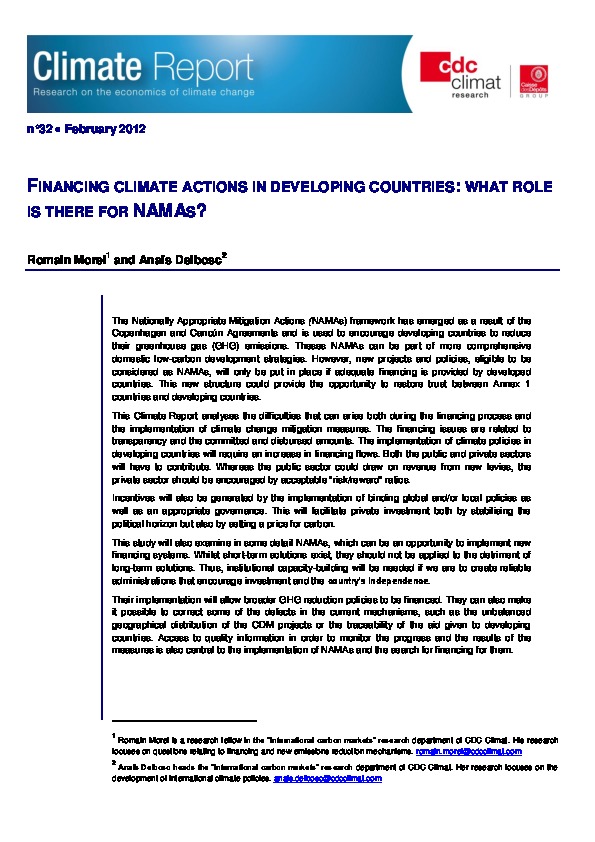Financing climate action in developing countries: What role is there for NAMAs?
By Romain MOREL et Anaïs DELBOSC
The Nationally Appropriate Mitigation Actions (NAMAs) framework has emerged as a result of the Copenhagen and Cancún Agreements and is used to encourage developing countries to reduce their greenhouse gas (GHG) emissions. Theses NAMAs can be part of more comprehensive domestic low-carbon development strategies. However, new projects and policies, eligible to be considered as NAMAs, will only be put in place if adequate financing is provided by developed countries. This new structure could provide the opportunity to restore trust between Annex 1 countries and developing countries.
This Climate Report analyses the difficulties that can arise both during the financing process and the implementation of climate change mitigation measures. The financing issues are related to transparency and the committed and disbursed amounts. The implementation of climate policies in developing countries will require an increase in financing flows. Both the public and private sectors will have to contribute. Whereas the public sector could draw on revenue from new levies, the private sector should be encouraged by acceptable “risk/reward” ratios.
